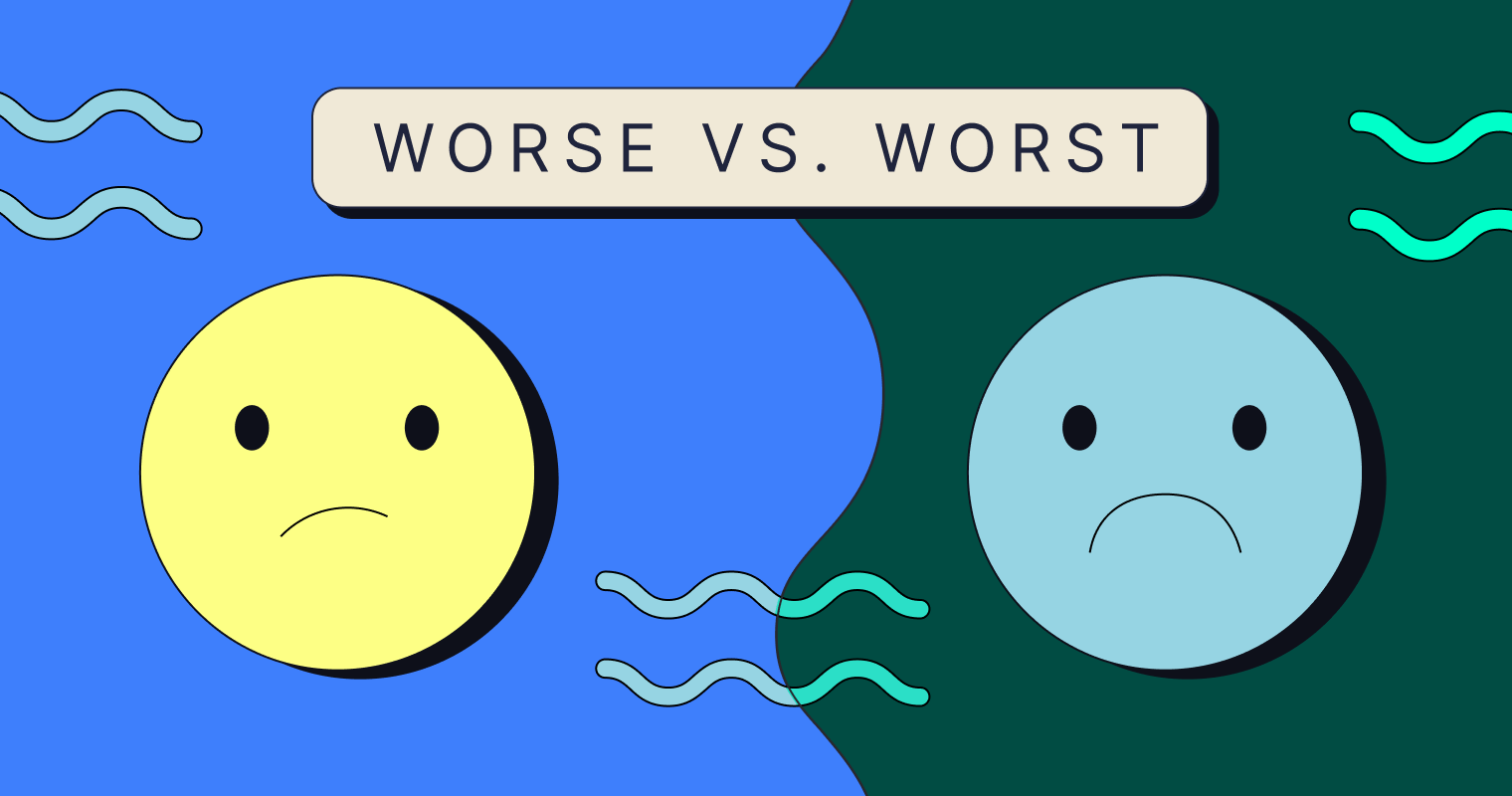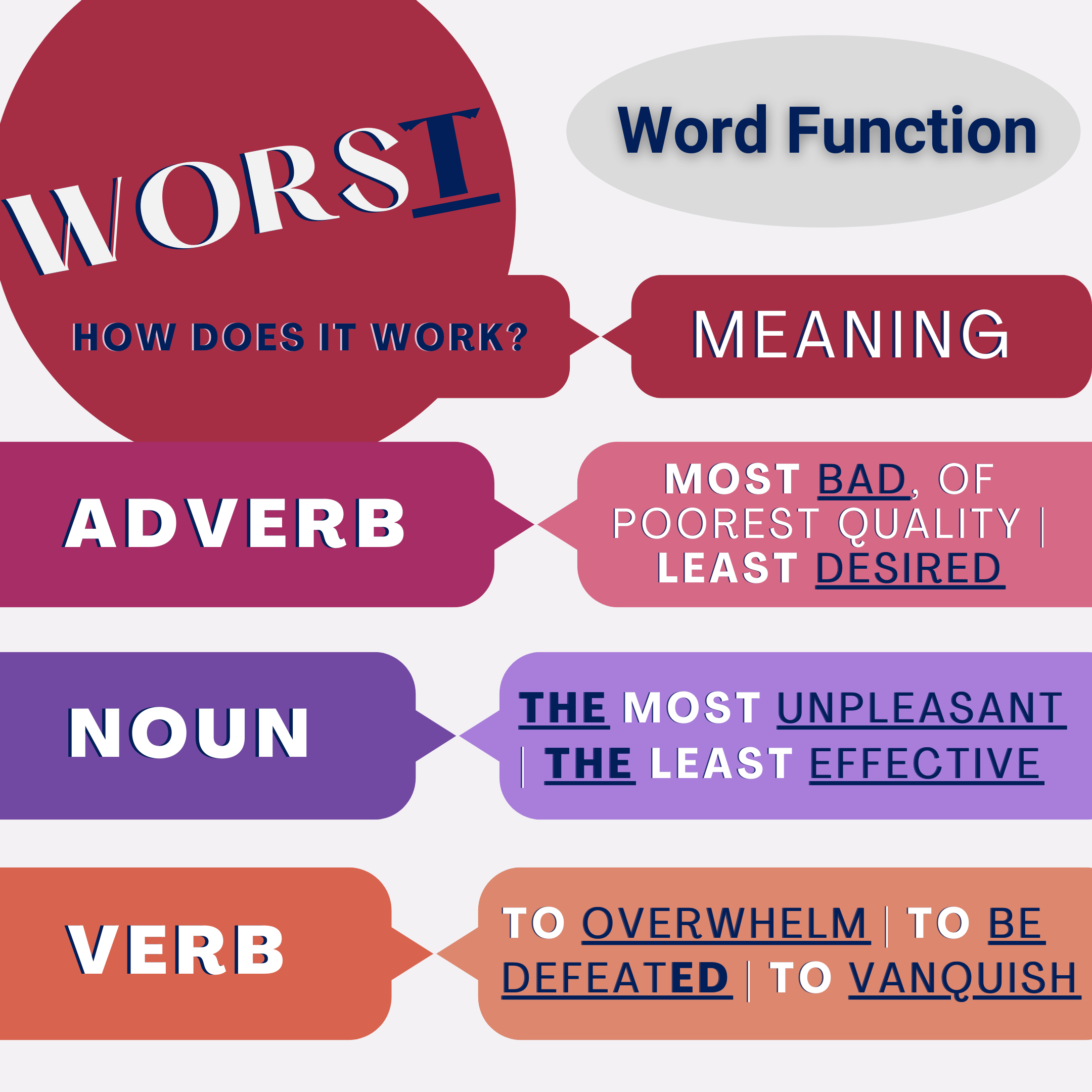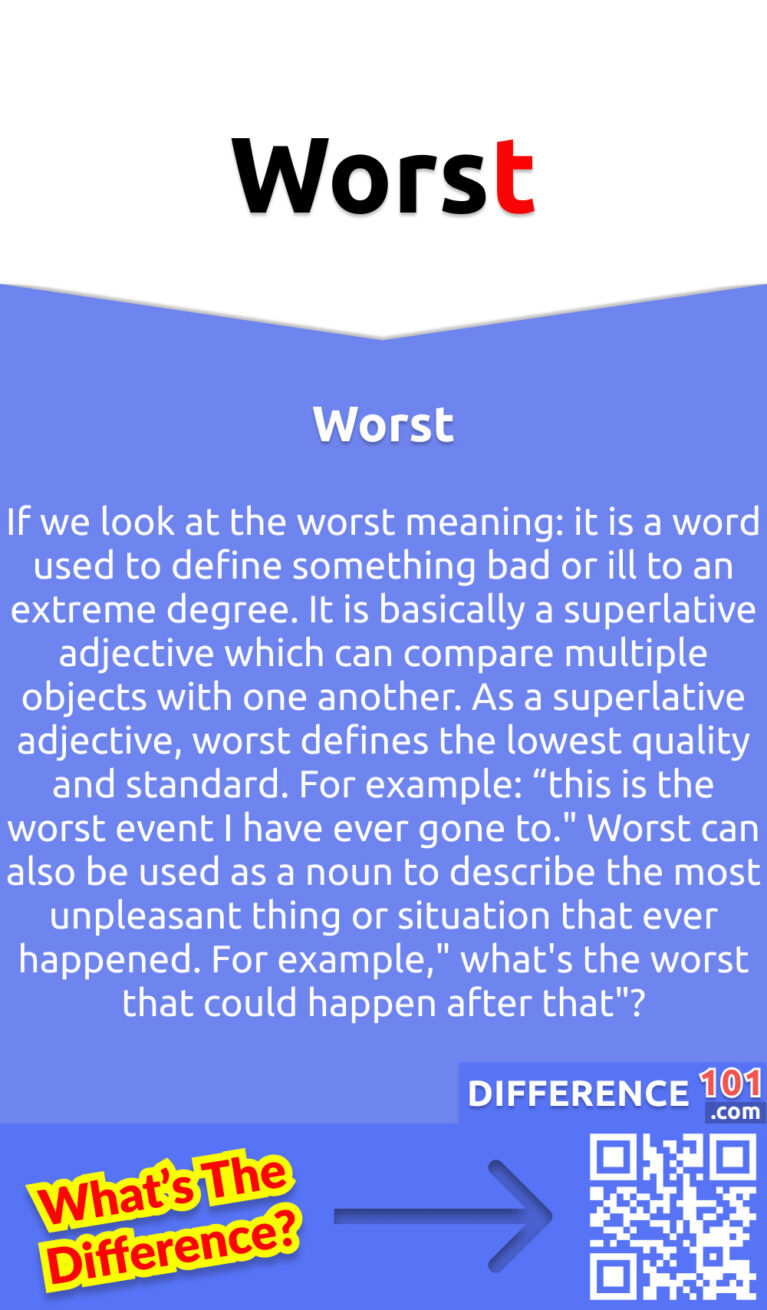Worst Face Off Contestant - Unpacking Show Moments
When we talk about the idea of the worst Face Off contestant, we are often thinking about someone who, in some respects, might have shown work of the lowest quality, or perhaps delivered something truly unpleasant, difficult, or just not quite right for the challenge. It is a thought that comes up, naturally, for viewers who have followed the show through its many seasons, watching artists create incredible creatures and characters. You know, sometimes a piece just doesn't land as well as others, and that's part of the competition, isn't it?
One of the coolest parts of watching Face Off, you know, is seeing the big change from a regular person, a model, into a fantastic creature. It makes you wonder, too, if artists ever look at the model they are working with and get a sudden flash of inspiration, or maybe a moment of concern about how to bring their vision to life. This transformation is, in a way, the heart of the show, showing off the skill and imagination involved.
It is important to remember, however, that we don't truly know any contestant personally, so it's hard to hold any real dislike for them. Even when they seem to be shown in a bad light on the program, you are still only seeing a small, heavily edited portion of their time there. We only get a glimpse, and that glimpse might not tell the whole story, as a matter of fact.
Table of Contents
- What Makes a "Worst Face Off Contestant" in the Eyes of Fans?
- Perceiving the "Worst Face Off Contestant" - The Edited View
- How Did Competition Formats Shape the "Worst Face Off Contestant" Experience?
- Bullying and the "Worst Face Off Contestant" - A Personal Account
- Remembering the End of an Era - What Happened to the "Worst Face Off Contestant" Title?
- Fan Opinions on the "Worst Face Off Contestant" Seasons
- Could a Nickname Point to a "Worst Face Off Contestant" Moment?
- The Definition of "Worst Face Off Contestant" - More Than Just Skill
What Makes a "Worst Face Off Contestant" in the Eyes of Fans?
When viewers think about a "worst" contestant, it often comes down to the quality of the work presented on the reveal stage. Sometimes, a makeup piece might just not meet the usual high standards of the show, perhaps looking unfinished, or maybe the design concept just didn't quite hit the mark. It could be that the colors seemed off, or the forms didn't quite flow together as well as they could have, leading to a creation that felt a bit out of place. This isn't to say the artist lacks skill generally, but rather that a particular piece might have been, in some respects, a stumble.
A "worst" outcome might also mean a creation that was, to put it mildly, unpleasant to look at. Perhaps the textures were difficult, or the overall effect was just not what the judges, or viewers, were hoping for. It is, you know, a very subjective thing, art, and what one person finds less appealing, another might find interesting. But in a competition like Face Off, there is a certain expectation of visual appeal and technical neatness. A piece that misses these expectations can feel like a low point for that artist in the competition, more or less.
Sometimes, the "worst" performance can come from a difficult challenge or circumstances. Artists are often under immense pressure, with very little time and sometimes unexpected problems. A concept that sounded good on paper might not translate well to the model, or maybe the materials just didn't cooperate. So, a piece that seems "worst" might actually be the result of a very tough situation rather than a lack of talent. It is, you know, a really hard thing to do, creating such detailed work under the clock.
Perceiving the "Worst Face Off Contestant" - The Edited View
It is really worth thinking about how we, as viewers, come to form our opinions about who might be the "worst Face Off contestant." We are, as a matter of fact, only seeing a small, carefully put together piece of what actually happens. The show's creators have to tell a story, and sometimes that means highlighting certain moments or showing artists in a particular light. This can shape how we feel about someone, even if it's not the full picture. A person might have many good days, but if the show only focuses on their struggles, that's what sticks with us.
Reality television, like Face Off, uses editing to build excitement and create character arcs. This means that a contestant who appears to be struggling, or perhaps even acting in a way that seems less than ideal, might actually be a much more well-rounded person off-camera. We only get a slice, a very small piece of their time, and that piece is often chosen to fit a narrative. So, judging someone as the "worst" based on that limited view might not be entirely fair, you know?
We don't know the artists personally, and their actions on screen are part of a game, too. The pressure of the competition, the cameras, the deadlines – these can all make people act in ways they wouldn't normally. What seems like a poor attitude or a lack of effort might be exhaustion or stress showing through. It's important to remember that these are real people, doing a very tough job under very public scrutiny. So, you know, it's a good idea to hold back from truly disliking anyone based just on what we see.
How Did Competition Formats Shape the "Worst Face Off Contestant" Experience?
The different formats of Face Off seasons could, in a way, really change how contestants experienced the show, and how viewers might have perceived some as the "worst Face Off contestant." For instance, the "shop versus shop" format on Face Off led to some very direct confrontation. There was, as a matter of fact, a moment where a foreperson and a team member had a disagreement that spilled over into the judging session. This kind of public disagreement could, you know, make a team or individual look less than ideal, even if it was just a moment of stress.
In a team setting, if one person's work is not up to par, it can affect the whole group. This might lead to a team member being seen as the "worst" in that particular challenge, not just for their own work, but for how it impacted the group's overall outcome. The pressure to work together, even with people you might not naturally click with, can be immense. So, a perceived failure might be more about team dynamics than individual skill, which is a rather interesting point.
Other formats, like individual challenges, put all the pressure on one person. If an artist has an off day, or struggles with a particular concept, there is no team to help carry the load. This can make their struggles more visible, and perhaps, lead to them being considered a "worst" performer for that week. It's a different kind of pressure, and it can really show who thrives under solo scrutiny and who might do better with a bit of group support, too.
Bullying and the "Worst Face Off Contestant" - A Personal Account
Sometimes, the perception of a "worst Face Off contestant" can be tied to personal stories that go beyond just the makeup. Missy "Munster" Stell, for example, shared a story that touched on bullying, monsters, and makeup during her time on Face Off. She mentioned, quite openly, that she had "got bullied basically my whole life because of the way I look." This kind of personal experience can certainly affect how someone performs under pressure, or how they interact with others in a competitive setting.
When someone is dealing with personal struggles, or even past hurts, it can be really hard to focus completely on the creative task at hand. The show, while celebrating art, is also a very intense social environment. If a contestant is feeling picked on or uncomfortable, their creative output might suffer, or their personality might come across differently on screen. It's a reminder that there's often more going on with a person than what we see during a challenge, you know?
Missy's account brings up a good point about the human side of competition. It is not just about who makes the best monster, but also about how people cope with stress, group dynamics, and personal challenges. A contestant who seems to struggle, or perhaps even comes across as difficult, might actually be going through something very personal that affects their performance. So, it's a bit of a nuanced thing, this idea of who is "worst," as a matter of fact.
Remembering the End of an Era - What Happened to the "Worst Face Off Contestant" Title?
Face Off was, in many ways, a loving tribute to the art of makeup effects, a place where artists could show off their incredible skills. But sadly, the show came to an end with its thirteenth season. This final season was, you know, called "Face Off: Battle Royale," and it saw contestant Matt Valentine declared the winner. With the show's conclusion, the chance to debate who might be the "worst Face Off contestant" in future seasons also ended, which is a bit sad for fans.
The end of the show felt, for many viewers, like a real loss. After thirteen seasons, just one more winner would be announced, joining the ranks of truly talented prosthetic artists who had come before. It was a moment of mixed feelings, celebrating the final champion while also saying goodbye to a beloved program. The show had given us so many amazing creations and, yes, a few that perhaps didn't quite hit the mark, but all part of the fun.
For those of us who enjoyed watching, it is still a bit hard to believe that the Syfy reality competition is no longer on air. We are, more or less, still in denial that it's over. The show brought so much joy and inspiration to fans of special effects makeup. So, while we might have had our opinions on who struggled, the overall feeling is one of gratitude for the years of creative entertainment it gave us.
Fan Opinions on the "Worst Face Off Contestant" Seasons
Fans of Face Off often love to rank the seasons, deciding which ones were the best and, yes, which ones might be considered the "worst Face Off contestant" seasons overall. These rankings are, you know, based on thousands of votes from people who followed the show closely. A season might be seen as "worst" not because of one contestant, but perhaps because the challenges felt less exciting, or maybe the overall quality of the work seemed to dip a little. It's a collective feeling, really.
Sometimes, a season might be viewed as "worst" if it felt like there was less creativity, or perhaps too much drama that took away from the art. Viewers want to see amazing makeups, and if a season doesn't deliver as many jaw-dropping moments, it might fall lower in the rankings. It's not about hating any particular artist, but more about the overall viewing experience. So, a "worst" season is more about the show's flow than individual failings, in a way.
On the flip side, the "best" seasons are those where the artists consistently blew everyone away with their imagination and skill. These are the seasons that are talked about for years, where every challenge seemed to bring something new and exciting. So, the idea of "worst" seasons comes from a comparison to these very high points, rather than a truly bad experience, as a matter of fact.
Could a Nickname Point to a "Worst Face Off Contestant" Moment?
It's funny, my husband and I are, you know, really not great at remembering the actual names of contestants on these kinds of shows. So, we often end up giving them nicknames, like "Sneakers," "Ears," or "Blue." It helps us keep track, more or less. One contestant, for example, had the nickname "Joe Knows." This kind of nickname can sometimes stick because of a memorable moment, or perhaps a perceived weakness, that might make someone think of them as having a "worst Face Off contestant" type of moment.
The contestant known as "Joe Knows" had a very notable moment on the show. Following the judging on the Face Off reveal stage, Joe actually left the set entirely before the spotlight challenge's final results were announced. As a result of this action, he was disqualified from the competition. This kind of departure, you know, is certainly a low point for a contestant, and it sticks in the minds of viewers as a very significant event.
A disqualification is, in some respects, the ultimate "worst" outcome for a contestant in a competition. It means they didn't just lose, but were removed from the running altogether. This specific event, with Joe leaving the set, created a lasting memory for fans, and it certainly fits into the discussion of memorable "worst Face Off contestant" moments, or at least, moments that were very difficult for the contestant involved.
The Definition of "Worst Face Off Contestant" - More Than Just Skill
When we talk about the "worst Face Off contestant," it's not always just about the quality of their makeup. Sometimes, it also relates to other things, like social skills or even physical abilities needed to do well in the game. Some competitors, you know, might lack the ease with people or the physical endurance that is needed to truly succeed in a high-pressure environment like Face Off. To make it far and perform well on the challenge, artists need more than just artistic talent.
The show demands a lot, not just creatively, but also in terms of working under pressure, managing time, and interacting with models and fellow artists. If someone struggles with teamwork, or perhaps finds the long hours and physical demands too much, it can affect their performance, leading to results that might be seen as "worst." It's a holistic challenge, you know, not just about painting and sculpting.
The word "worst" itself, when used in general, means something of the lowest quality, or the most unpleasant, difficult, or severe. It refers to something that is most inferior in quality, condition, or effect. In the context of Face Off, it can mean a makeup piece that was, you know, simply not up to par, or a situation that was the most unfavorable for a contestant. It's a comparative word, meaning "more bad" than others, or the "most bad" among a group. So, when we use it for a contestant, it's about their standing in relation to others, or their most challenging moment, as a matter of fact.
In thinking about the idea of a "worst Face Off contestant," we have explored how fan perceptions are shaped by edited glimpses, how competition structures like shop versus shop can create conflict, and how personal stories like Missy "Munster" Stell's experience with bullying can influence a contestant's journey. We also touched upon the show's emotional ending with Matt Valentine's win, the ways fans rank seasons from best to "worst," and the memorable, very public disqualification of "Joe Knows." It is clear that the concept of "worst" in this context is complex, extending beyond mere artistic skill to include social dynamics, personal challenges, and the intense pressures of reality television competition.
- Scuba Oxygen Tank
- Blue Whale Next To A Human
- Biggest Dog In The World Great Dane
- Stephen Curry With Daughter
- Villa Santa Barbara

301 Moved Permanently

worse vs worst what is the difference?

Worse vs. Worst: 7 Key Differences, Pros & Cons, Examples | Difference 101